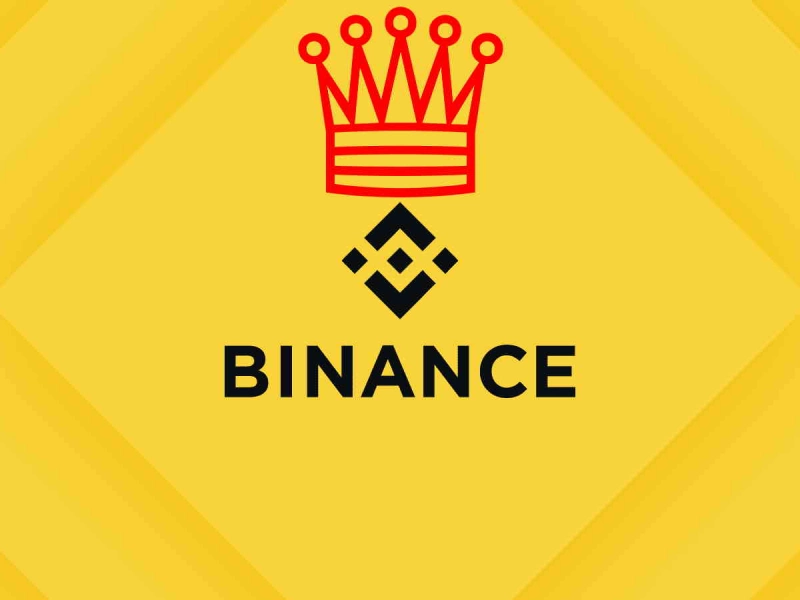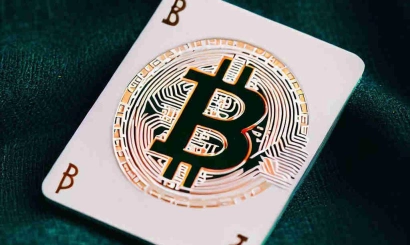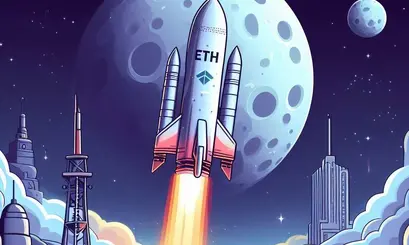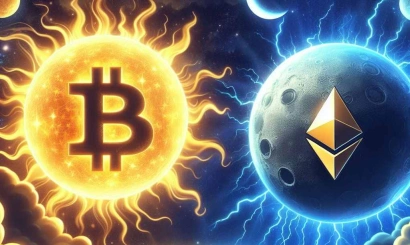"It's a declaration of war." Why the BUSD issue ban is the most important event
The U.S. Securities and Exchange Commission (SEC) has informed Paxos Trust that it plans to sue it for violating investor protection laws. According to the regulator, Binance USD (BUSD), the third most capitalized stablecoin, a digital asset that Paxos is issuing, is an unregistered security. It is not yet known whether the SEC notice specifically relates to the issuance of BUSD, its listing on exchanges, or both.
The New York State Department of Financial Services (NYDFS) has since ordered Paxos to cease issuing new BUSD tokens altogether. Listing the consequences of stopping the issuance of BUSD, the head of the exchange Binance Changpeng Zhao admitted that the capitalization of the asset will continue to decline, and investors will begin to move into another stablecoin.
"Risks to other stablecoins are high."
BitRiver financial analyst
The news of the ban on the issue of Binance USD (BUSD) stablecoin had a negative impact on the market, but not as strong as from the collapsed exchange FTX. The Securities and Exchange Commission (SEC) is investigating Binance, so Paxos is also under scrutiny by the regulator and the New York State Department of Financial Services (NYDFS).
The regulator considers BUSD to be an unregistered security. But with that logic, other stablecoins would also be at risk, USDT and USDC. Most likely, someone has their eye on Binance, creating problems not only for the leading exchange but for the entire industry. The risks to other stablecoins are high.
Binance CEO Changpeng Zhao said he will continue to support BUSD for the foreseeable future. The company predicts that customers will switch to other stablecoins. Therefore, the platform will make changes accordingly.
BUSD momentarily dropped to $0.9950 against USDT. The current quote is $0.9983. A moderate recovery is observed. Bitcoin was down to $21433.
"A stress test for the entire ecosystem."
Nikita Zuborev, Senior Analyst at Bestchange
First, you should understand that there are currently no threats to BUSD depreciation: only the issuance of new tokens is prohibited, and circulation of already issued tokens can continue for many more years without any noticeable problems for the segment of private investors. First of all, this will limit the inflow of capital to the BNB Chain blockchain and related DeFi projects, although it will not even stop it completely. Globally, the market will lose only one entry point for investors, but dozens of others will remain available, including the more common USDT and USDC stackcoins.
The very existence of BUSD was more of an image component, the practical benefit was not something fundamental to the exchange. It was just one of the ways to increase the citation and use of its services. Therefore, there is no threat to the existence or even reliability of Binance today.
There are potentially three main risks in the current situation. The first is the lack of collateral to cover liabilities to BUSD owners. But here there are more questions to Paxos as an intermediary.
The second risk is related to the short-term withdrawal of investors from the Binance ecosystem - in the first hours or even days after such image stories amid fear of uncertainty, investors "run away" from a potentially toxic asset, which brings down the quotations of the exchange's native token (BNB) and provokes a real stress test for the entire ecosystem. But there is no reason today to believe that Binance will fail such a challenge.
The third risk is related to sanctions against the company due to the issue of unregistered securities. This could potentially lead to multi-million dollar fines and the closure of Binance's U.S. division. This would be a very serious blow not only to the image but also to the financial stability of the company. Although, it is very premature to talk about even the potential possibility of bankruptcy.
If we talk about the risks for the stablecoin industry, they have existed since the first day of their existence, and nothing has significantly changed after this precedent. In terms of potential stability, the threat of a repeat of this scenario for the first two most capitalized stack coins (USDT and USDC) is quite small. There are no prerequisites for this to happen yet. But the rest of the stablecoin market is in a lot of uncertainty today because of the potential continuation of this "witch hunt.
First of all, we should pay attention to the tokens of companies with Chinese roots. There is a certain overlay of political engagement in this, and in a global sense, it can even be seen as one of the episodes of the "trade war," even though Binance's connection with mainland China is very mediocre today.
"There are no boundaries for U.S. regulators."
ENCRY Foundation co-founder Roman Nekrasov
There are no boundaries for U.S. regulators. All it takes is one American citizen using the services of some platform or protocol for American regulators to consider these protocols as belonging to their jurisdiction. The attack on stablecoin issuers was expected; the SEC has been saying for years that these companies are not transparent enough, do not comply with US banking laws, do not have the necessary reserves, and so on. If the SEC attacked a BUSD issuer, it would be wise to get ready for attacks on other stackable currencies as well: above all USDT and USDC. Given the majority share of USDT in the stackable coin market, an attack on them is fraught with a serious crisis in the cryptocurrency market and the subsequent collapse of all coins without exception.
Stablecoins on the crypto market act as an analog of fiat money, they are necessary to provide liquidity, that is, they can quickly buy and sell a coin. Without stablecoins, there will be no such liquidity. If the SEC will increase pressure on Tether and if it will stop issuing USDT under threat of prosecution, bitcoin can fall to $10K very fast. Large investors will immediately begin to exit crypto-assets and an avalanche-like sell-off will begin, which the cryptocurrency market has never seen before.
Binance is trying to distance itself from this problem by stressing that BUSD was issued by Paxos and not Binance. But everybody understands that Binance supported BUSD and promoted its use in its trading services. Obviously, this is a blow to Binance. We can already see how half a billion dollars in crypto-assets were withdrawn from the exchange in an hour, and cryptocurrency rates went into a rapid downward trend. And this is not the first blow to Binance coming from U.S. regulators. Recall that Binance was also involved in the scandal with the laundering of criminal proceeds from the illegal marketplace Hydra, which passed through a crypto service Bitzlato.
The clouds over Binance and other exchanges are thickening. It is now worth being extremely careful when using centralized crypto exchanges and not storing more assets there than are used in trading. This sets a dangerous precedent and clearly hints at a similar attack on other Stablecoin issuers.
"This is a declaration of war."
Dmitry Machikhin, founder of the BitOK service
This event is completely legitimate. Obviously, US regulators have openly declared war on at least Binance itself - both its American division, which is a separate business and the company as a whole. In a broader sense, this is a continuation of the fight against stablecoins as an element of opposition to the classical financial system on behalf of the Web 3.0 sphere.
This is a global and extremely important event, and one that should be taken carefully, to read the contents of the documents that the NYDFS regulator has published about the ban on the continued issuance of BUSD. In fact, it means banning BUSD as an entity, but perhaps a series of lawsuits could follow. The power of regulators, including in the United States and in Anglo-Saxon countries, is high enough, so you can expect anything.
I am sure that Binance was ready for that and its management will find a legal and reasonable way out of this situation. Further wide usage of BUSD is out of the question. I think, there will be some alternative or decision. The other major exchanges that are issuing Stablecoins should be on their guard and take some action, because any private Stablecoins, especially those that are issuing exchanges, should be hard-pressed. This is a declaration of war.




_410x245_00e.webp)


